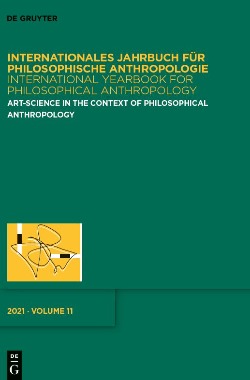Jos de Mul. Uncle 'Sim' wants you! Playful warefare. Lecture and contribution to the Panel Discussion of the conference Videogames, War High Culture Bari: October 17, 2022.
What are they, but most of all, what could video games be? To what extent are old and new generations influenced and "educated", directly or indirectly, consciously and unconsciously, by the videogame applications developed for (and in) the psycho-social space of the “Global Market”? What relationship exists between High Culture, in the complexity of its (re) definition, and the world of contemporary (Cyber)Ludus? In 2018 Fabio Belsanti, CEO and Lead game designer of AgeOfGames with a background as a historian, Roberto Talamo, literary theorist and teacher, and Elisa Di Lorenzo, CEO Untold Games, questioned themselves and, at the same time, asked a first group of scholars/academics and developers, these and many more questions with the purpose to feed the international debate on the complex and multifaceted universe of videogames.
In the spirit of Johan Huizinga's great essay “Homo Ludens”, the project has a clear multidisciplinary approach and will try to proceed in multiple directions by involving scholars and developers from all over the world in the formulation of ever new, problematic questions (and, perhaps, answers). In addition to an extensive video section, with discussions and interviews, the project contributed, in collaboration with professor Marco Accordi Rickards, CEO Vigamus Foundation, to the creation of a first miscellaneous work that crystallizes some reflections developed during the round tables. The work is entitled “Homo Cyber Ludens” and has collected very high profile contributions.
Panel Questions 2022
I War (Video) Games
What are they, beyond an ordinary sense, in reality? For military professionals, they can be tactical battlefield simulations; for strategy lovers, a way to experience the thrill of leading entire civilizations; for children, toy soldiers and weapons are one of the first ways to measure the present. From the sacredness of the Roman games, passing through the autumn of the Middle Ages enclosed in the heavy armor of knightly tournaments, to reach the multiple virtual representations of war, do we get a glimpse of a sort of "pure" ludic joy in humanity, or a part of it, in the act of going to war?
II Ludo-Narrative Structures of War
Is the war story a propaganda tool of the ruling power moved by materialistic objectives? Or is it a complex representation of the intricate psycho-emotional needs of man who has been trying for millennia to exercise a form of control and exorcism over the contradictions in rational awareness of the precarious human condition? What is War for history and the stories of the world and of our unconscious depths in addition to being the representation of a formidable narrative engine that moves, creates and overwhelms passions, characters and meanings?
III The hero-warrior today
What has happened to the archetype of the hero-warrior in the era of the crisis of narrative identity, increasingly linked to the elusive ludic identity? What significance can the extreme sacrifice of the hero who decides, or even yearns, to die in battle for a "higher" purpose (and for the community) have today, in a world of frenetic virtual representations of death in war? Is there a relationship, and a clear separation, between the desire for warrior heroism in the real world and the virtual one, as well as the need to exorcise the moloch of death? With our (video) games and ludo-cyber-culture are we demolishing or paradoxically strengthening (with unprecedented modalities and mutations) this ancient archetype, in an apparently individualistic society with little propensity to sacrifice for the good of the community?
IV The Art of War and (Video) Games
Can (Video) Games help us understand, as well as calm down, existential anxiety and guide the complexity of the human soul and its destiny, allowing us to virtually navigate the hells of destruction? What is the connection between the weapons of historical kings and their virtual duplicates? Are (Video) Games reflections of another world in which to grow, in which to face complex paradigms and then try to bring back what has been seen / faced / learned to the present?
V End of the Games
Have we really reached the end of the equilibrium established, after the end of the Second World War, by Mutual Assured Destruction? After the collapse of the Berlin Wall, history is not only not over, but in the new century it seems to have accelerated it's capacities and methods of changing, not only as regards the physical and operational boundaries of states at a geopolitical level, but above all the reactions of a humanity that is increasingly projected into cyber-ludens universes, dominated by powers capable of conquering data and information, no longer using this information to predict history, but to try to direct it on the basis of undeclared and not evident purposes. Can the history, structure, meaning, and rules of ludus and war somehow help us (re) write a balance that can avoid the real cancellation of human life from the face of the earth due to a total strategic nuclear conflict? Or, on the contrary, does the habit of participating in virtual conflicts, the mixing on the same digital media of images of real war with playful war structures make us more suitable and perhaps indifferent to actual existing conflicts?









